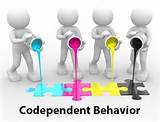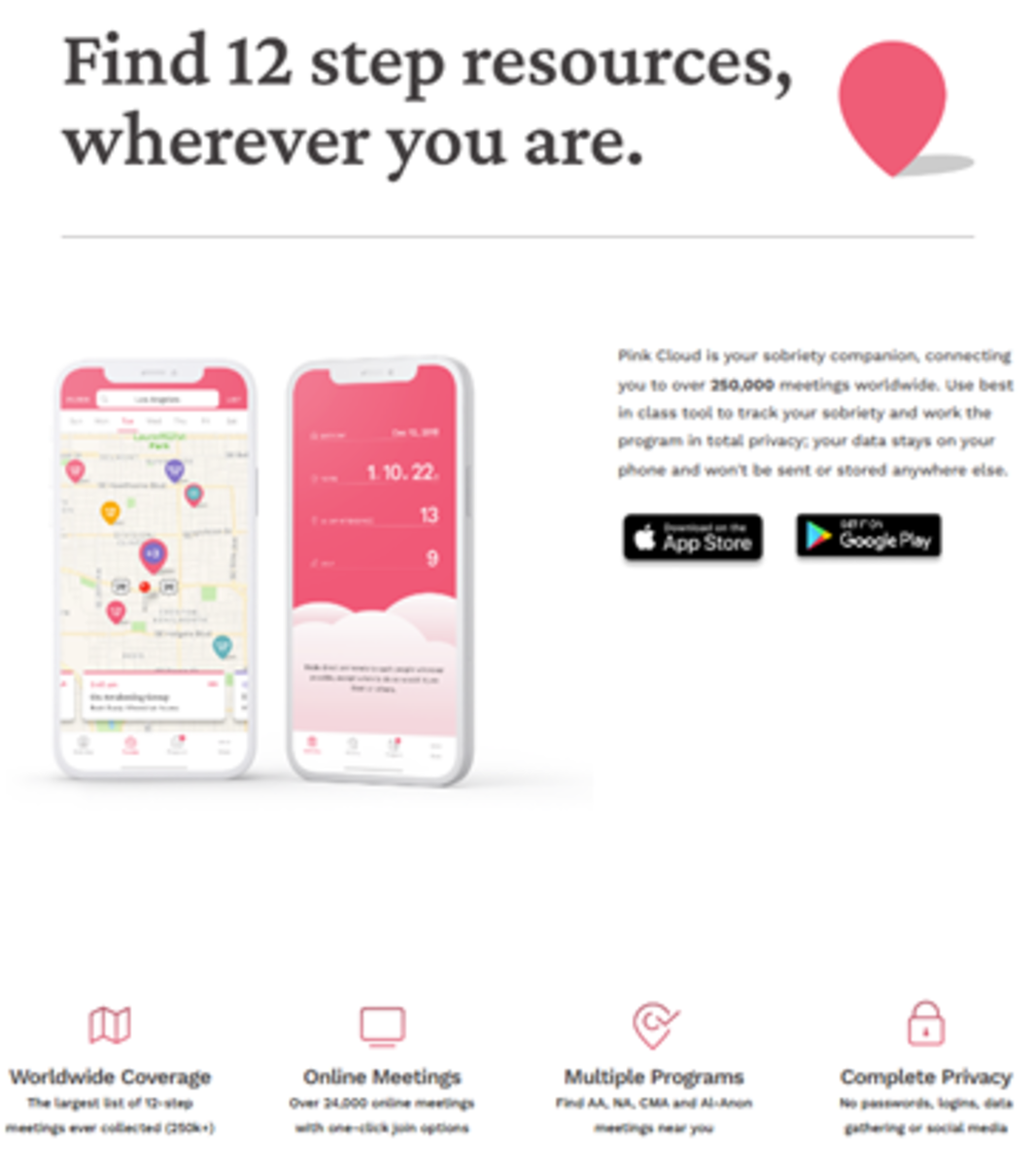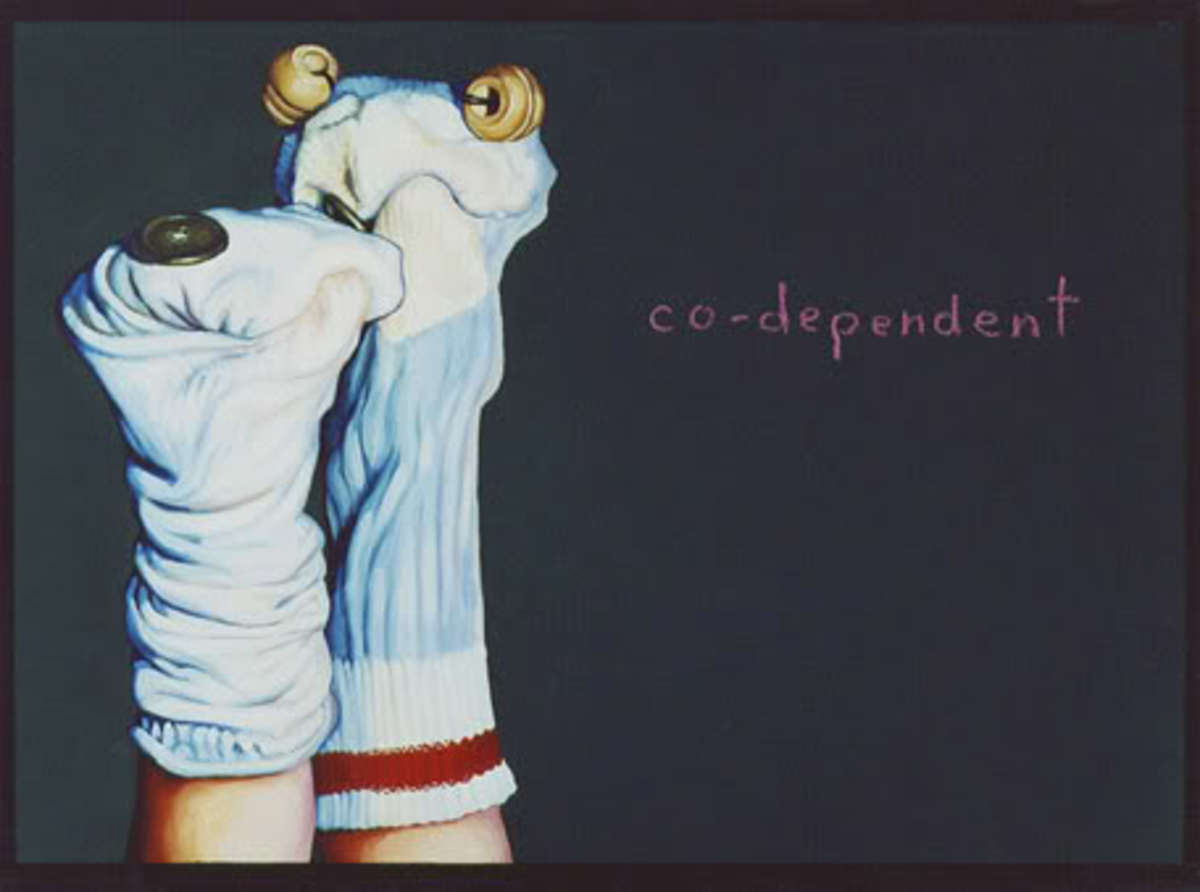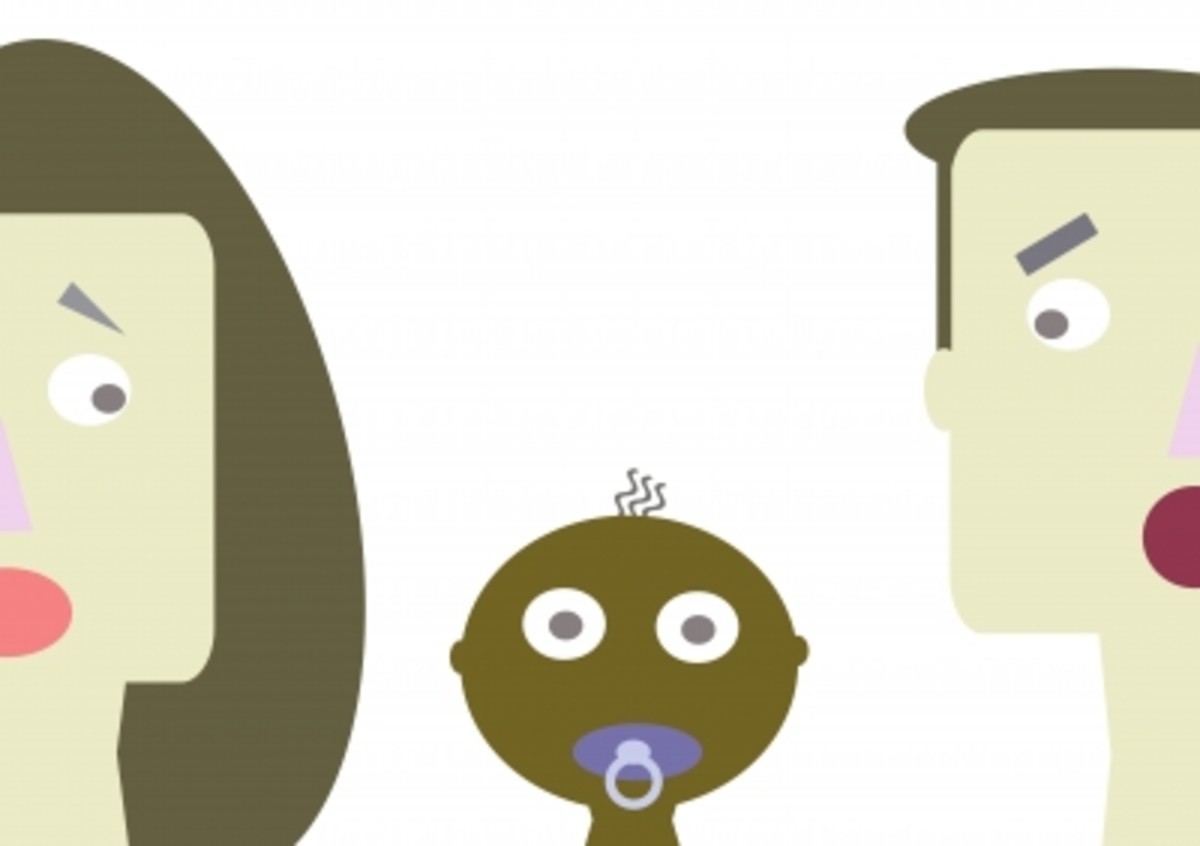Codependency is an Addiction Too




Codependency
Codependency can be defined as an addiction to people, behaviors, or things. A sense of control or lack of it, is central to everything a codependent does and thinks. Codependency is a belief we will be happy by controlling people and events outside ourselves.
Codependency doesn't improve with time. Time itself tends to make the condition worse. However, there are steps one can take to help turn the situation around. There are two stages of recovery from codependency.
-
Codependents must explore their lives and bring their relationships into clear focus. This includes evaluating your parents' relationship to you.
-
Codependency is classified as an addiction. Although it might not involve alcohol or drugs you are addicted to something such as unhealthy relationships, or control issues.
The only sure cure is breaking the cycle of the addictive agent causing the problem.
Dysfunctional families in the past may have left you with many negative messages about yourself. These messages are like a recording playing over and over controlling your life.
Part of recovery is creating new experiences to help override old misconceptions about yourself.
Accountability to others is an essential part of this process. A mentor, counselor, therapist, or support group can be extremely helpful.
Make God a central part of your recovery.
Codependent or Dysfunctional?
All families are somewhat codependent or dysfunctional. This is natural since none of us are perfect. All of our parents of meets mistakes. They passed some of their pain on to us, and likewise we will pass some on to our own children. But there are steps we can take to heal the root causes of our codependency and to break cycle. That is the key issue facing all of us who struggle with the issue of codependency: becoming whole and creating healthy families.
What is Codependency?
Codependency is a myth we can make ourselves happy by controlling people and events outside of ourselves. Codependency is generally defined as an addiction to people, behaviors, or things. A sense of control, or the lack of it is fundamental to everything a codependent person thinks. Today, codependency is an epidemic afflicting an average of 100, million Americans. We gain better insight into how codependency operates by examining their traits:
-
Codependents are driven by one or more compulsions. Compulsions are easy to identify if they are addiction to drugs or alcohol, sex, physical abuse of others, or eating disorders. Other compulsive behaviors, although equally real, are more difficult to identify: Workaholism, obsessive compulsive behavior, and the like. They are rarely seen as addicts; rather they are praised for their actions because they are the ones usually identified as “successful.”
-
Codependents are tormented by events occurring in their dysfunctional family of origin. No one grows up where all needs are met continuously. With severely dysfunctional families, the pain is increased and likely to pass from generation to generation, although it frequently exhibits itself in different ways. One may be a compulsive drinker; however their child may be an exact opposite such as a compulsive volunteer or benefactor.
-
Codependents commonly sufferlow self-esteem. They have received few, if any affirming messages from parents or caregivers during childhood. They see themselves as inadequate, and have an insatiable need for approval by others.
-
They believe happiness depends upon others' behavior. They strive to fix unhappy aspects of their past by manipulating people and events. If they felt unloved and abandoned as children, they may be perfectionists as parents to compensate for past failures.
Many try to avoid this pain by trying to solve other people's problems. Since codependents can't even manage their own lives, they take upon themselves needless guilt.
God created us to be both dependent and independent. However, we are ultimately responsible for our own well-being. Nobody can be expected to care for all of our needs. We must realize God created us with a need for companionship, with Him as well as others. Regardless, codependents continually find themselves at extremes in their relationships. For example, they might express themselves by telling someone close “I can't live without you” or “I don't need you or anyone else.”
Codependents are masters of denial. One of the first questions asked during a counseling session is how their childhood was. Invariably they will respond with a rosy sounding description. Oddly enough, they then go on to describe a not so happy childhood. This tendency to deny seeming so helpful in the past, now becomes an obstacle to hurdle in their recovery.
Those afflicted with codependency worry about things they have no control over, however that doesn't stop them from trying. They can't accept the fact they are unable to control others.
Like a person with a bipolar diagnosis, their lives range from one extreme to another. Those who see only one side of the codependent's life, find it hard to believe the other extreme also coexists within them. The message is worth and dignity missed during childhood have left a big void in their life. Therefore, they look outside themselves for meaning and purpose.
Self Test: Codependency Assessment
If you believe there are issues of codependency in your family, take the following test. Check statements that are true about your life and family.
Part One: Self-Assessment
--- I can't stand being alone.
--- I am a perfectionist.
--- I am driven by the approval of others.
--- I feel desperate when I can't gain the approval of others.
--- I find myself making decisions based on how they will affect others and not myself.
--- Many times I feel obsessed by a need for total order in my life.
--- I put work first, above anything.
--- Find myself adjusting to my spouse's needs rather than communicating my feelings.
--- I don't experience anger.
--- I often overeat.
--- I constantly wonder what other people think of me.
--- I hide my feelings so others won't realize what I really think.
--- I'm afraid if others really knew me, they wouldn't like me.
--- I cover up my feelings of self-doubt with drugs or alcohol.
--- I find it difficult to say no when asked to do a favor.
--- when I began to feel sad or angry I go shopping, work harder, or eat.
--- I tell myself it shouldn't hurt so much when others let me down.
--- I often feel I need to change the way other people behave.
--- I need everyone to be happy with me so I can feel good about myself.
--- I need others to be strong for me without requiring anything from me in return.
Part Two: Family Relationship Assessment
--- I frequently doubt I really know my children.
--- My child has become secretive and withdrawn.
--- My spouse and I continually promised to spend more quality time with the kids but never seem to have enough time.
--- There is a consistently high level of activity in our home.
--- On an average week, there are at least two or more evening meals at which the entire family is not gathered.
--- Someone in our family uses alcohol or some other mood altering drug, whether illegal or by prescription.
--- 10 more members of my household is constantly at war with another member or members.
--- My child or children seem to avoid one parent and attach excessively to the other.
--- I am intensely interested in and involved my work, my homemaking, church work, or community service.
--- The sexual dimension of my marriage has drastically diminished sense we were first married.
--- I or my spouse has taken sexual expression outside of marriage, meaning an affair, prostitution, pornography, and so on.
--- Our marriage is in trouble and one or both of us are seriously considering divorce.
Part Three: Assessment of the Children
--- One or more of my children has been diagnosed as hyperactive.
--- One or more of my children has begun displaying patterns of “acting out.”
--- My child struggles to be perfect.
--- My child suffers persistent or chronic physical health problems which can't be medically explained such as headaches, fatigue, or frequent recurring illnesses.
--- My child seems to love disrupting the family.
--- My child gets along better with adults rather than with other children.
--- One or more of my children has great difficulty separating from me.
--- I have been getting questions or negative feedback from people outside my immediate family regarding my children's grades or conduct.
If you checked three or more in parts one, two, or three, then there are probably issues of codependency operating and you, your family system, and your children. The more issues you checked, the greater your need for dealing with codependent issues. It's advisable to seek counseling to examine and resolve these issues.
10 Stages of Recovery
-
Exploration and discovery. Be willing to explore your life and discover clues why you are the way you are. Write a short history of your life, with significant facts and events occurring at various stages in your life. These could be births, deaths, moving, tragedies, or other painful things. What patterns do you see? What unhealthy relationships, painful memories?
-
Relationship inventory. Bring relationships into clear focus. Don't pass judgment on events in your life by calling them right or wrong.
-
Addiction Control. If you are codependent, you have an addiction. It may not involve alcohol or drugs, but you are addicted to something. Unhealthy relationships, controlling others, work, or success, spending. You are caught in an Addiction cycle. Every time you indulge in your addiction, you incur more consequences, guilt, and shame. Your self-esteem plummets, pushing you even further into the addiction cycle. To break this cycle of addiction you must break free of them. Once a substance or behavior has become an addiction, the only solution is abstinence.
-
Addictive agent. If the addictive agent is an unhealthy relationship, you must build clear, healthy boundaries in that relationship. If it's compulsive controlling, workaholism or substance abuse problem, then a recovery group could be the answer. Recovery depends on freeing yourself from it.
-
Leaving home. Many spend years of their adult lives trying to leave the nest. It means untangling yourself emotionally from parental expectations and desire to have a secure place to hide when life becomes too difficult. This means saying goodbye parents and false symbols of security. It may even mean saying goodbye to deceased parents, closing the stage on their emotional abuse or their predictions about your future.
-
Grieving your losses. It's important to grieve thoroughly. Losses will continue to affect your life until you have done this. You must move through the stages of grief. But understand: grief follows its own timetable. This is normal, so be patient and recognize each time you recycle through the stages, the process becomes a little easier.
-
New self-perceptions. If you grew up in a dysfunctional home, you received many negative, messages about yourself. These messages play repeatedly in your mind, controlling your life. To some, the simple statement, “I have permission to live,” may come as a welcome revelation and a startling new self perception. To break free, replace old self defeating messages with new ones. Discover how God views
-
your worth. “Therefore,” says Paul, “if anyone is in Christ, he is a new creation; old things have passed away; behold, all things have become new” (2 Corinthians 5:17).
-
New experiences. The next step in your recovery is to create new experiences based on new perceptions about yourself, other people, and life in general. These new experiences will not be bound by past issues. They may include restructuring your relationships. They may include becoming more active than passive, reading books on parenting, instead of drifting through your role as a parent. Or being more assertive in conflict situations.
-
Being re-parented. Inside every codependent is a personality that still thinks and reacts as a child. That emotional child stays with us for life. It is the part of us that is still most sensitive to pain of our dysfunctional family of origin.
-
Nurture and healing. Nurture and healing requires nurture and healing, a process known in recovery circles as “re-parenting.” Re-parenting fills the void left by an emotionally deficient upbringing. You can't change the past, but you can find new sources of love and affirmation. You can experience re-parenting in three ways:
-
Re-parenting and affirming, giving yourself positive messages through another or support group. Be re-parented by God, prayer, meditation, and passages of Scripture.
-
Relationship accountability. Being accountable to others is an essential part of recovery. When you make yourself accountable, you increase the probability you will follow through on your goals.
-
Build accountable relationships with other support group members, group Bible study, counselor or therapist. In that relationship, you ask others to hold you accountable for whatever goal is important to you, and you meet with that person on a weekly basis, or possibly more frequently. Every time you meet they will ask about your progress, And you will answer honestly and fully.
Looking back, you can see how far you've come. You learned a lot about yourself. You can maintain balance by:
-
Balancing time and avoiding extremes.
-
Meeting physical, emotional, and spiritual needs.
-
Maintaining balance in relationships.
If your spouse or members of your family are unwilling to participate in your recovery process, don't worry. A close relationship with God will help you continue to love and forgive them. And the emotional support you receive from your church, support group, counselor, or friends will keep you on track.
It's important to make God a central part of your recovery. He is present and more than able to help you in your recovery. He offers the security of knowing you are loved and affirmed. You can't master your addictions, but God can. This is the great paradox of the Christian gospel: “Our loss becomes our gain. We give up everything; we gain everything. We release our brokenness in order to gain wholeness.”








